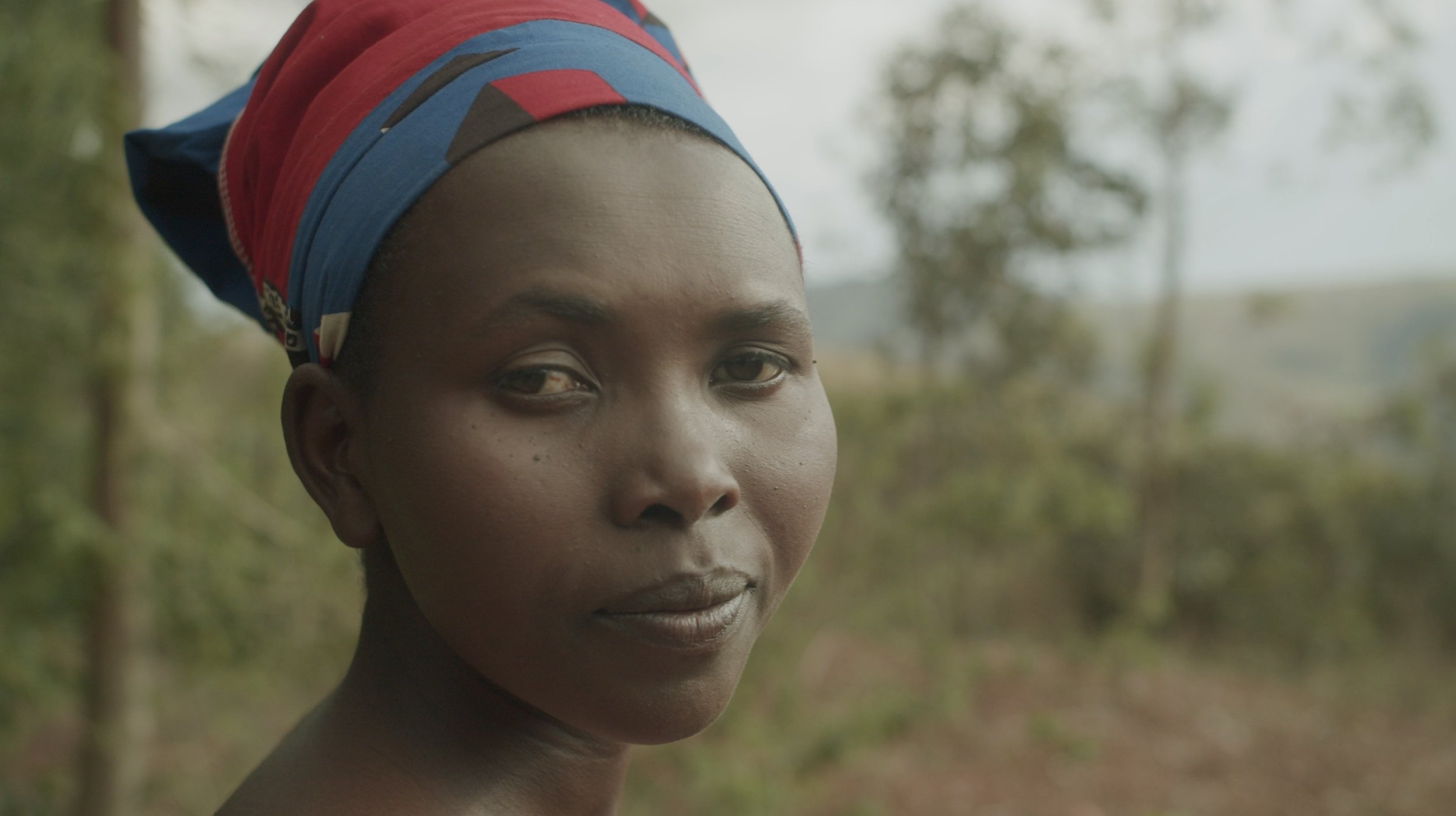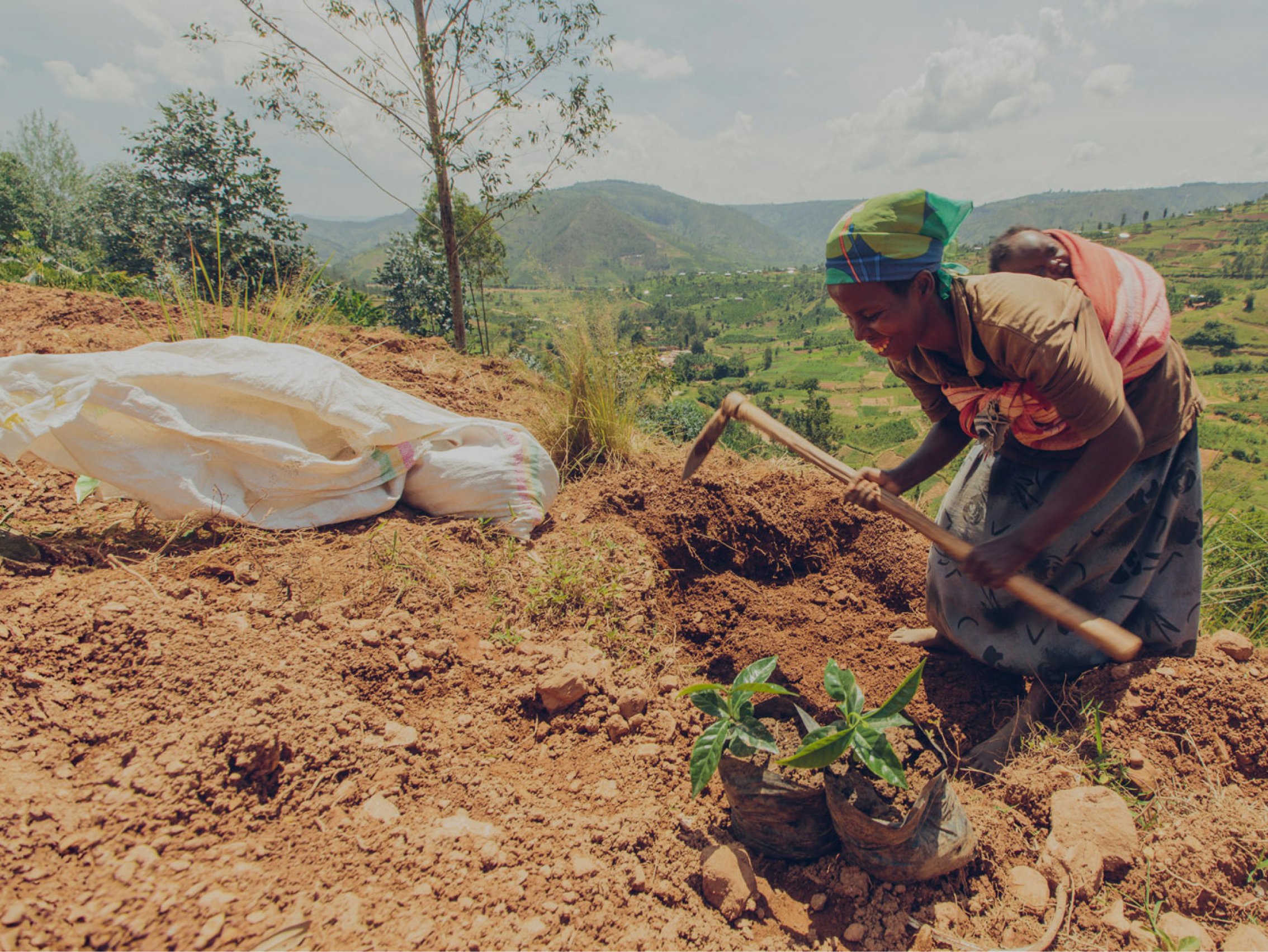
Every day we witness the interconnectedness
of environment and livelihoods,
of farms & futures,
Of Land & Women is Kula’s initiative to highlight the challenges and opportunities for female farmers around the world, and our response in the coffee farming communities where we work.
When a female farmer thrives she is able to invest more fully in the earth under her feet, in best practices and long-term solutions to the planet's challenges. And likewise, only when that earth is healthy and productive can it support the women who cultivate it, who put their trust in its soil every day to keep their families fed and their businesses growing.

Through 2024, we have planted 1 million trees in Rwanda.
What is the impact of 1 million trees planted?
Over the last several decades in Rwanda, population growth has led to deforestation which, along with the use of chemical inputs, has contributed to soil quality degradation, erosion, landslides, and overall detriment to the health and yield of coffee farms and, in turn, farmer livelihoods.
In response, the Kula Fellowship provides coffee agronomy training through a regenerative agriculture lens, focusing on practices that will nourish the land in the long term and yield better, more sustainable production results and richer livelihoods for farmers. This approach prioritizes both the human and biological aspects of farming – focusing on building soil and farm health as a direct driver to farmers’ lasting success. Soil health, biodiversity, carbon sequestration, efficient water usage, proper waste management, climate adaptation, and self-sustaining plant health all combine to support maximized production and farmer profitability, creating a synergetic ecosystem between the land and its caretakers.
Planting trees is a key component of this approach, yet it represents so much more.
Combined with other critical aspects of regenerative agriculture through our Fellowship Program, it ensures that both farms and farmers are thriving.

What is Regenerative Agriculture?
Regenerative Agriculture is an approach to farming that emphasizes long term soil health and productivity, organic and sustainable inputs, the responsible use of natural resources, and the interconnection of farms and farmer profitability. It is an evolution of conventional agriculture which recognizes the needs and opportunities to adapt how farming has been done in order to respond to the current state of our planet and its people.
Women in Agriculture
Across the developing world, most women engage in farming. In Rwanda, where 70% of its population farm, it is the predominant way of life. For most women, agricultural work doesn’t replace domestic duties- it coincides with them. Along with cooking, cleaning, and caring for children, women are also expected to be working their family’s land and supporting its growth. Far too often, this huge amount of duty comes with an inverted amount of choice. Roles are defined by traditions and norms, and with them come a large inequity in decision making, preventing growth socially and economically.
In the Kula Fellowship, our approach with farming families positions women as the household delegate. Training and conversations are facilitated that address family mindsets and gender inequalities, foster cohesive family vision crafting engaging all household members, and provide needed skills to women and their families to efficiently increase their farm production and invest in entrepreneurship and business growth. As women are equipped and supported, they will decide their future.
Regenerative Agriculture Objectives
Increase Farm Resilience and Climate Adaptation
Support Farmer
Profitability
Optimize Plant Health with Reduced Reliance on External Inputs
Build
Soil Health
Improve
Water Use
Enhance
Biodiversity
Reduce Greenhouse Gases and Increase Carbon Sequestration
better Waste
Management
Regenerative Agriculture Practices
in the kula fellowship

We’ve planted 1,000,000 trees so far, but that’s just the start.
We will plant 2 million trees by 2028, and surpass 2.5 million by 2030.
Join Us
Special thanks to One Tree Planted, Planet Women, and Terrafund for AFR100 in their partnership of our tree planting initiatives.















